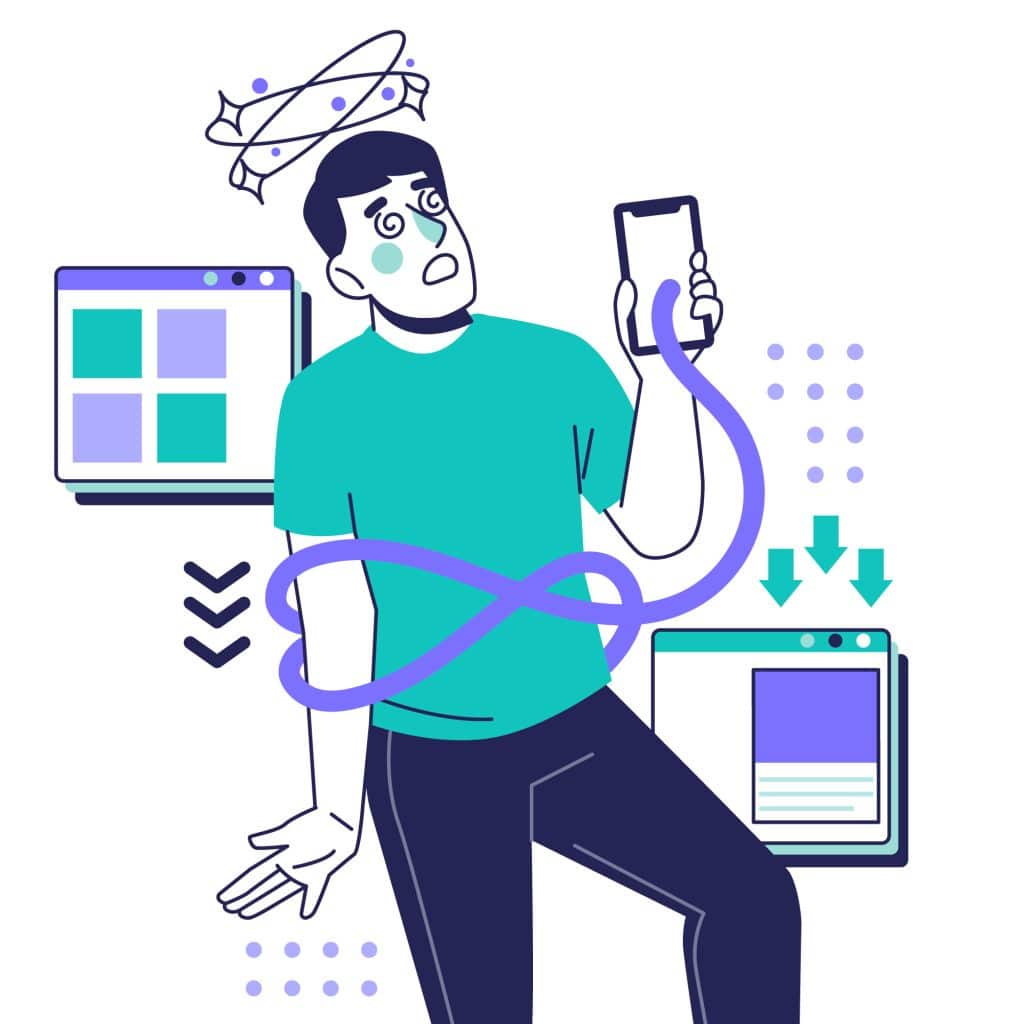How Breaks from Technology Enhance Mental Health
Ella Knight August 7, 2025
In our modern, hyper-connected world, it’s almost impossible to go a day without interacting with some form of technology. From smartphones and laptops to smartwatches and social media platforms, we’re constantly plugged in. While these devices offer convenience and connectivity, there is a growing body of research suggesting that constant technology use may have negative effects on our mental health.
Amidst the rise of “digital wellness” and “tech detox” movements, many people are beginning to recognize the importance of taking breaks from technology. Studies have shown that these digital breaks can lead to improved mental clarity, reduced stress, and better emotional well-being. In this article, we will explore the emerging trend of technology breaks, how they can positively impact mental health, and practical strategies to incorporate digital detoxes into your daily life.

The Impact of Technology on Mental Health
Before we dive into the benefits of taking breaks from technology, it’s important to understand how technology use affects our mental health. While technology itself is not inherently harmful, excessive or improper use can contribute to a variety of mental health challenges:
1. Increased Stress and Anxiety
One of the most significant effects of constant technology use is heightened stress and anxiety. With the constant influx of emails, messages, and notifications, many individuals experience a sense of pressure and urgency. The fear of missing out (FOMO), often fueled by social media, exacerbates feelings of stress and can lead to heightened anxiety levels.
According to a study published in Computers in Human Behavior, excessive use of social media and technology is associated with higher levels of anxiety and stress. The constant comparison to others and the pressure to stay connected can create a sense of mental overload.
2. Sleep Disruptions
Technology, particularly screens, can negatively affect sleep quality. Exposure to blue light emitted by phones, tablets, and computers disrupts the production of melatonin, the hormone responsible for regulating sleep. As a result, people who use their devices before bed often struggle with falling asleep or experience poor-quality sleep, leading to increased feelings of fatigue and irritability the following day.
A report by the National Sleep Foundation found that nearly 90% of people use electronic devices before bed, and the majority of them report sleep disturbances as a result. This cycle of poor sleep can contribute to higher levels of stress, decreased cognitive function, and worsened mental health.
3. Decreased Attention Span
In a world full of notifications and constant multitasking, our attention spans are shrinking. Technology fosters a culture of distraction, where we’re constantly shifting our focus from one task to another. Studies have shown that constant interruptions from digital devices can impair our ability to concentrate and focus on a single task for an extended period.
A study by the University of California, Irvine found that it takes an average of 23 minutes to regain focus after an interruption from a digital device, which significantly reduces productivity and increases mental fatigue. Over time, this constant switching between tasks can contribute to mental burnout and decreased cognitive function.
4. Social Isolation
Although technology connects us to others online, it can also lead to feelings of social isolation. People often spend more time interacting with screens than engaging in face-to-face conversations, leading to a reduction in meaningful social interactions. Research has shown that excessive screen time, particularly on social media, is linked to feelings of loneliness and disconnection.
A study from the American Journal of Preventive Medicine found that increased social media use is associated with a higher likelihood of experiencing social isolation, particularly among adolescents and young adults. The lack of real-world connection can lead to negative emotions and worsen mental health.
The Benefits of Taking Breaks from Technology
Given the various negative impacts of constant technology use, it’s clear that taking regular breaks from screens and digital devices can be highly beneficial for mental health. Here are some of the ways in which digital detoxes can enhance your well-being:
1. Reduced Stress and Anxiety
Taking a break from technology can help alleviate the stress and anxiety that often come with being constantly connected. By disconnecting from social media, work emails, and notifications, you can give your mind a much-needed rest. A study conducted by University of California, Berkeley found that taking a short break from technology can reduce cortisol levels (the stress hormone), leading to a calmer, more relaxed state.
- Tip: Schedule “tech-free” time during your day to allow your brain to unwind. Even just 30 minutes without technology can significantly reduce stress levels.
2. Improved Sleep Quality
One of the most significant benefits of taking breaks from technology is improved sleep. By limiting screen time before bed and reducing exposure to blue light, you allow your body to naturally wind down and prepare for restful sleep. Studies have shown that even a small reduction in screen time can improve sleep quality and duration.
- Tip: Set a “no screens” rule for at least 30-60 minutes before bedtime. Consider using this time for reading, stretching, or practicing relaxation techniques.
3. Enhanced Focus and Productivity
When you take regular breaks from technology, your ability to concentrate and focus improves. A digital detox gives your brain the opportunity to reset, making it easier to focus on one task at a time. Studies have found that people who take breaks from technology are more productive and experience greater cognitive clarity.
- Tip: Use the Pomodoro Technique to create focused blocks of time, followed by short breaks where you disconnect from technology. This can help improve productivity and mental clarity.
4. Better Mental Clarity and Creativity
Taking breaks from technology allows your brain to enter a state of deep thinking and creativity. Without the constant flow of digital distractions, your mind has the space to process ideas, connect dots, and develop creative solutions. Many successful individuals, including writers, artists, and entrepreneurs, have credited their best ideas to moments of solitude and digital detoxes.
- Tip: Take a walk without your phone or practice mindfulness for 10-15 minutes each day to let your mind wander freely. This can foster creativity and improve mental clarity.
5. Stronger Real-Life Connections
Disconnecting from digital devices gives you the opportunity to engage more fully with the people around you. Whether it’s having a face-to-face conversation or enjoying a meal without distractions, taking a break from technology fosters deeper, more meaningful relationships.
- Tip: Designate certain times during the day or week as “device-free” hours, where you engage in activities like family meals or outdoor activities without digital distractions.
How to Implement a Digital Detox: Practical Tips
While the idea of taking breaks from technology may sound appealing, it can be difficult to know where to start. Here are some practical tips to help you incorporate digital detoxes into your daily routine:
1. Set Boundaries for Screen Time
Begin by setting boundaries around your screen time. Use apps like Screen Time (iOS) or Digital Wellbeing (Android) to track your daily usage and set limits on certain apps or activities. Gradually reduce your screen time, especially for activities like social media browsing and gaming.
2. Designate Tech-Free Zones
Create tech-free zones in your home, such as the bedroom or dining room. Use these spaces to relax, sleep, or engage in activities that don’t involve screens, like reading or cooking.
3. Schedule Digital Detox Days
Pick one day a week or month to completely disconnect from technology. Use this time to go outside, read, engage in hobbies, or spend quality time with friends and family. A full day without screens can give your mind the reset it needs.
4. Turn Off Notifications
Limit interruptions by turning off non-essential notifications on your phone or computer. This can help reduce the constant pull of digital distractions and create more moments of quiet.
5. Engage in Mindful Practices
Incorporate mindfulness into your daily routine, such as meditation or deep breathing exercises. These practices help you detach from technology and focus on the present moment, improving mental health and well-being.
Conclusion
Taking regular breaks from technology is more than just a trend—it’s a powerful way to enhance mental health, reduce stress, and improve overall well-being. As our reliance on digital devices grows, it’s crucial to intentionally disconnect to maintain a balanced and healthy life. By incorporating digital detoxes into your daily routine, you can improve your focus, creativity, sleep quality, and relationships.
In the age of constant connectivity, remember that taking a step back from technology may be the best thing you can do for your mental health. Embrace the power of quiet moments and digital breaks, and watch how they transform your well-being.
Reference
- Chatbots Can Trigger a Mental Health Crisis, https://time.com
- Impacts of digital social media detox for mental health: https://pmc.ncbi.nlm.nih.gov
- Technology and the Future of Mental Health Treatment, https://www.nimh.nih.gov







